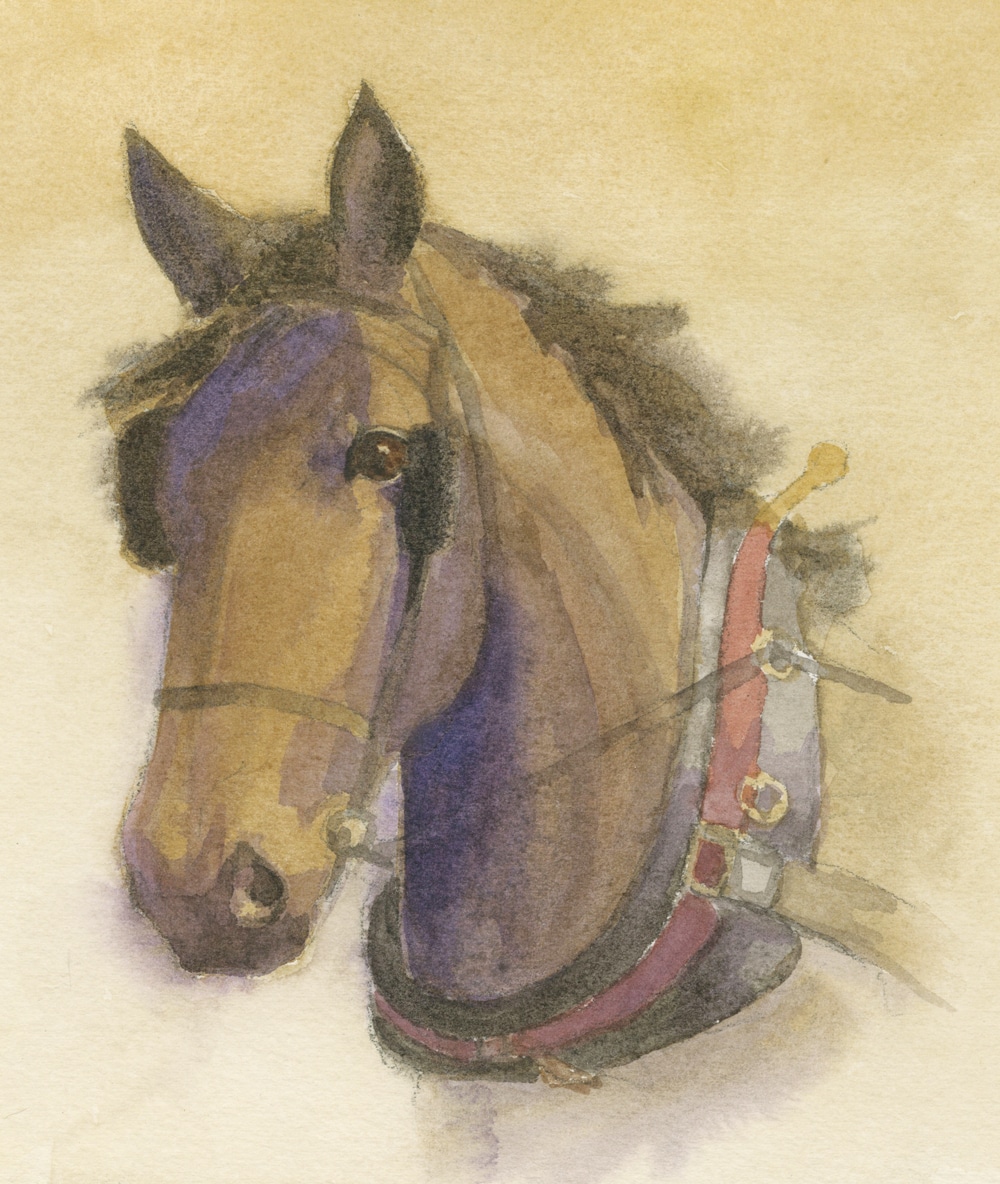A Horse Named Danny | Mary’s Farm
A lifetime friendship began with a question: “Have you seen my horse?”

A Horse Named Danny
Photo Credit : Jamie Young
Photo Credit : Jamie Young
I have a friend named Jamie. We met years ago because of a horse named Danny. I was in my early twenties, and my husband and I were living in an old farmhouse on top of a hill, from which we could see New Hampshire, Vermont, and Massachusetts. No one else was living on that hill, so it was a surprise one day to hear a knock on the door. I opened it to the wintry wind; a young woman of about my age was standing on the step. She had tawny-colored hair pulled back in a braid, and she wore jeans and a denim jacket. “I wonder if you’ve seen my horse? He’s big and brown, a Percheron.” I knew a Percheron. “No,” I said, gesturing to the panoramic view past the open field. “If he were here, I would have seen him.” She went on to explain that she and her husband had just bought 112 acres in the middle of the woods. She pointed to the southeast: “We’re just moving up to build a cabin. I’ve had him only a couple of days. His name is Danny.”
It was that time in New England when young folks were “moving up” to build cabins in the woods. After they’d fattened Danny up, this couple was hoping to use him to help haul lumber and materials into the site. Jamie was somewhat breathless and pink-faced from her walk through the deep woods in search of her horse. “When they’re on the run,” she told me, “horses go to high places. That’s why I thought to come up here.” She told me how to find her and her husband if Danny showed up.
Not long after she’d walked back into the woods, I saw a brown horse in the field. He was big but very scrawny, a little swaybacked—a horse who’d seen better days. He had no halter or bridle or anything to grab onto, so I hopped into my VW Beetle and drove in the direction of the couple’s land. They were a mile into the woods, on a logging road, and, somewhat miraculously I realize now, I saw Jamie in a clearing. “I found Danny!” I called. Jamie grabbed a halter and a rope and jumped in. When we got back to the field, Danny was still there.
That was the start of it. When Jamie bought Danny, he’d been on his way to a meat auction, where old horses were sold to be made into dog food. Despite his appearance, she thought that he had what she called “spirit.” She was right. He learned to twitch logs, and, eventually, using an overturned car hood as a sled, she trained him to pull lumber, a woodstove, even groceries to the cabin. She rode him bareback, although to get up on his back she had to find a high perch, like a big rock or a porch, first—he stood 16 hands high. Whenever she was gardening or building a fence, Danny would follow her around like a dog, occasionally nudging her with his long nose. He was gentle and patient and had soulful brown eyes. We all learned to love him for the courage he showed. An old meat horse isn’t supposed to jump and prance like a show horse, but Danny did. He was Jamie’s best friend, and eventually he became her children’s best friend. After 14 years together, Danny, who by then was about 35, died one night. They had to bring in an enormous bucket loader to bury him.
Since then, Jamie and I have shared much of what life provides. Both of us have experienced losses and survived cancer. Jamie’s cancer was more serious than mine, requiring a bone-marrow transplant and years of recovery—but she did recover. Danny must have been nudging her from behind.
Edie Clark’s books, including her newest, As Simple As That: Collected Essays, are now available at edieclark.com. Danny: The True Story of a Great Horse, written and illustrated by Jamie Young, is available at jamieyoung.net.


